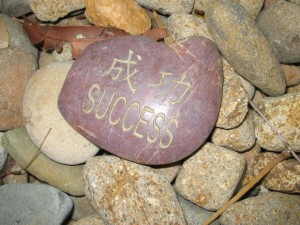Are we just preaching to the choir? Collaboration, co-teaching, information and digital literacy, technology integration, deep Web… ideas we have explored from month to month here in the BaCC Blog. Social media provides an opportunity to reach audiences who have similar interests, but it also opens opportunities to connect with folks who may not know what they don’t know. For those of us who have been immersed in the education world, specifically from a library POV, we tend to communicate in terms and concepts that make sense to us, but maybe not to others. Dare I say that we are a bit insular… and maybe we need to rethink how we can frame our conversations in real world vocabulary that demystifies the work we do.
This epiphany moment occurred to me as I was collaborating with a group of school, public, and academic librarians who were grappling with the wording of a proclamation to send to the governor of Vermont to sign about Information Literacy Awareness Month in October. The NFIL (National Forum on Information Literacy) is organizing and encouraging all states to join the parade and focus on information literacy as a critical component for lifelong learning and digital citizenship. We know that this is true, but in the general public, who has information literacy on the radar? And what the heck is digital citizenship?
As we struggled with the wordsmithing, we realized that we could not assume that our target audience (everyone in the state) had any idea what we were talking about. So we went back to square one-a definition of information literacy, and we articulated it in commonsense language-what it is and what allows learners to do. Of course, we added how libraries were involved as physical and virtual spaces for promoting information literacy, too. Speak plainly-this is how we can move the needle on a common understanding of the big ideas that all citizens can embrace and support.
Not only do we have to define our terms and concepts, but we have to show and model what we mean. That’s another strong suit for social media platforms such as flickr, googlesites, Pinterest, Scoopit!, Twitter, YouTube, and so many others. In Vermont, we want to show examples of information and digital literacy in action, so the Vermont Department of Libraries is curating a site that will showcase what is happening in schools and libraries throughout the state as a public awareness campaign. Instagram @your library! What is happening in your state?
October is also Connected Educator Month-for several years running. “Helping Educators Survive in a Connected World,” is the tag line. Here is another opportunity to connect with an expanded choir, if you have not discovered this valuable resource already. What is a connected educator, you might ask? How can you be a connected educator, if you are not already? Are you talking the connected educator talk and walking the connected educator walk? Check out the website to learn more. Organizations that support the ideas and goals of the Connected Educator crowd source professional development ideas and best practices for connected learning across all content areas and the world. There’s an impressive list of contributors and supporters from a range of organizations-both business and professional. (I was surprised to note the absence of AASL, though.) Each day during the month of October there are opportunities to network and participate with others who are finding new ways to embrace the potential for technology innovations to impact personal learning and teaching. Spend some time exploring the website and especially the Connected Educator Starter Kit (free pdf download). Here is a forum to find people and experiences that will expand your own toolbox of ideas, and opportunities to lend your voice from the library media world.
October is a time for choir practice in a connected world. What shall we sing about today? Loud and strong!
References:
Connected Educators. Website. http://connectededucators.org/
National Forum on Information Literacy. Website. http://infolit.org/
Image: Microsoft ClipArt



